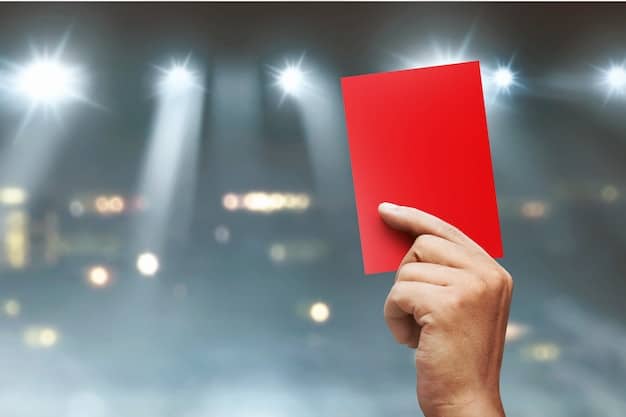Spot Fake Heavy Metal Concert Tickets: A Guide to Avoid Scams

Spotting fake heavy metal concert tickets requires careful attention to detail, including verifying the seller’s legitimacy, scrutinizing ticket features, and understanding refund policies to protect your money.
Attending a heavy metal concert is an experience many fans eagerly anticipate, but the excitement can quickly turn sour if you fall victim to ticket scams. Learning how to spot fake heavy metal concert tickets is crucial to ensure you don’t waste your money and miss out on seeing your favorite band.
Verify the Seller: Legitimacy First
Before you even look at the ticket itself, verifying the seller is paramount. Scammers often operate through unofficial channels, making it essential to do your homework.
Official Ticketing Platforms
Always start with official ticketing platforms like Ticketmaster, Live Nation, or the venue’s own website. These sources offer a higher degree of security and legitimacy.
Authorized Resellers
If you must buy from a reseller, stick to authorized platforms like StubHub or SeatGeek. These sites usually have buyer protection policies in place.
- Check the seller’s rating and reviews on resale platforms.
- Beware of sellers with new accounts or very few transactions.
- Look for guarantees or refund policies offered by the platform.
Always prioritize official sources and reputable resellers to minimize the risk of encountering fake tickets. Checking reviews and seller history can also provide valuable insights.

Examine the Ticket Details Closely
Once you have a potential ticket in hand (or on screen), scrutinize every detail. Fake tickets often have inconsistencies that are dead giveaways.
Typos and Misspellings
Carefully check for any typos, misspellings, or grammatical errors on the ticket. Official tickets are professionally printed and rarely contain such mistakes.
Font and Formatting
Examine the font style and formatting. Fake tickets often use different fonts or have inconsistent formatting compared to genuine tickets.
- Compare the font and layout to tickets from previous events at the same venue, if possible.
- Look for inconsistencies in the size and spacing of text.
- Pay attention to the clarity and sharpness of the printing.
A keen eye for detail can help you spot inconsistencies that are red flags for fake tickets. Comparing the ticket to known examples of legitimate tickets is also helpful.
Price Too Good to Be True? Be Wary
An incredibly low price might seem like a lucky find, but it’s often a lure used by scammers. Be cautious of deals that seem too good to be true.
Market Value Research
Research the average price for tickets to the specific concert. Compare prices across multiple platforms to get an idea of the market value.
Demand and Scarcity
Consider the demand for the concert. Highly sought-after events rarely have drastically discounted tickets available.
If the price is significantly lower than the average, it’s a major red flag. Scammers often use low prices to entice buyers into making quick, impulsive decisions.

Secure Payment Methods Are Essential
The way you pay for tickets can also affect your protection against fraud. Certain payment methods offer more security and recourse in case of a scam.
Credit Cards and PayPal
Use credit cards or PayPal whenever possible. These payment methods offer buyer protection and dispute resolution mechanisms.
Avoid Cash and Wire Transfers
Never pay with cash, wire transfers, or gift cards. These methods are untraceable and offer no protection against fraud.
- Be wary of sellers who insist on these payment methods.
- Always use a secure payment gateway provided by the ticketing platform.
- Avoid making payments directly to individuals.
Choosing secure payment methods provides an extra layer of defense against ticket scams. If a seller demands an unsafe payment method, it’s a strong indication of fraud.
Know the Venue and Its Policies
Understanding the venue’s policies and layout can help you verify the legitimacy of your tickets and avoid issues on the day of the concert.
Seating Charts
Familiarize yourself with the venue’s seating chart. Fake tickets often have incorrect seat numbers or sections.
Entry Requirements
Check the venue’s website for specific entry requirements, such as ID verification or restrictions on resold tickets.
Venues often have specific rules and policies in place to combat ticket fraud. Knowing these details can help you identify inconsistencies and avoid problems at the entrance.
Trust Your Instincts: If It Feels Off, It Probably Is
Sometimes, despite all your research, something might just feel wrong about a ticket or seller. Trust your gut feeling and don’t ignore red flags.
Unresponsive Sellers
Be wary of sellers who are unresponsive, evasive, or unable to provide detailed information about the tickets.
High-Pressure Tactics
Avoid sellers who use high-pressure tactics to rush you into a purchase. Legitimate sellers will give you time to make an informed decision.
Your intuition can be a powerful tool in detecting scams. If something feels off, it’s better to err on the side of caution and walk away from the deal.
| Key Point | Brief Description |
|---|---|
| ✅ Verify Seller | Check legitimacy via official platforms or authorized resellers. |
| 🧐 Examine Details | Look for typos, font inconsistencies, and formatting errors. |
| 💲 Price Check | Be cautious of prices that are significantly below market value. |
| 💳 Secure Payment | Use credit cards or PayPal for buyer protection. Avoid cash. |
Frequently Asked Questions
▼
Common signs include typos, unusual formatting, low price, and sellers demanding unconventional payment methods. Always compare the ticket to official examples if possible.
▼
Contact the ticketing platform or venue immediately. Report the seller to the platform and consider notifying your bank if you paid with a credit card or PayPal.
▼
Buying from individuals on social media carries a high risk. It’s generally safer to stick to official ticketing platforms or authorized resellers to avoid scams.
▼
Check for secure payment options, buyer protection policies, and customer reviews. Look for websites that are affiliated with official ticketing partners or venues.
▼
If you paid with a credit card or PayPal, you may be able to dispute the charge and get a refund. Contact your bank or PayPal to initiate a dispute process as soon as possible.
Conclusion
Protecting yourself from fake heavy metal concert tickets requires vigilance and informed decision-making. By verifying sellers, scrutinizing ticket details, and using secure payment methods, you can significantly reduce your risk of falling victim to scams and enjoy your concert experience worry-free.





